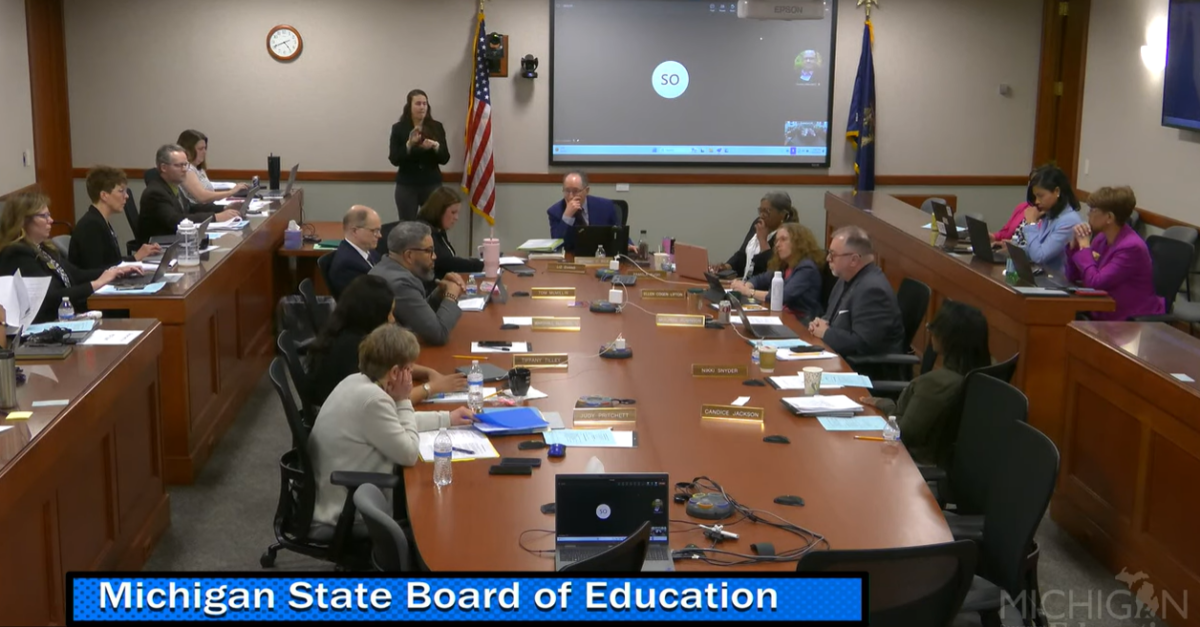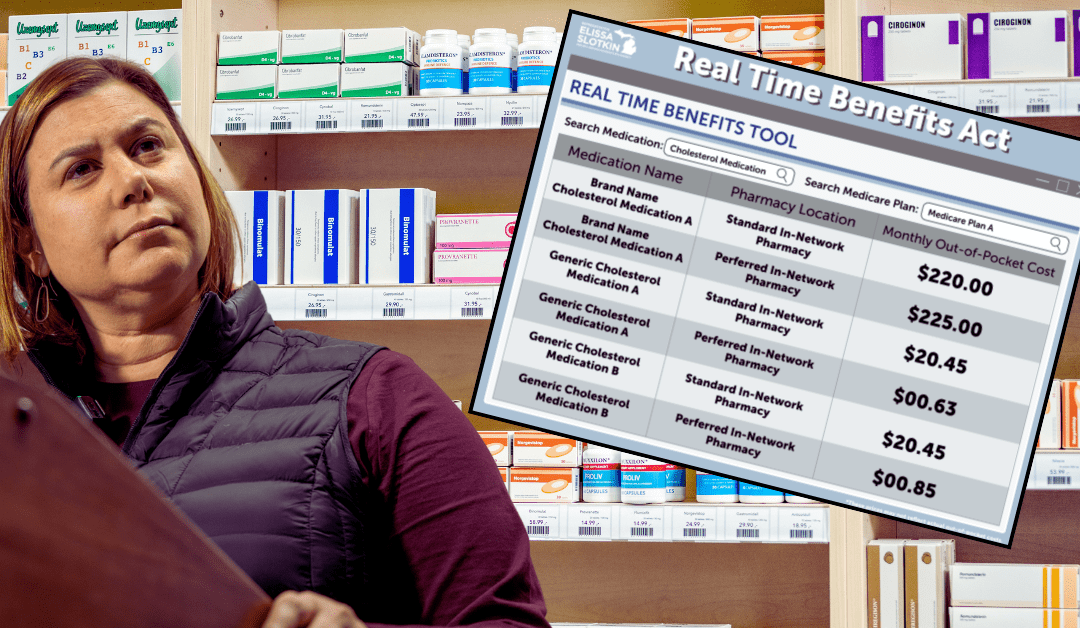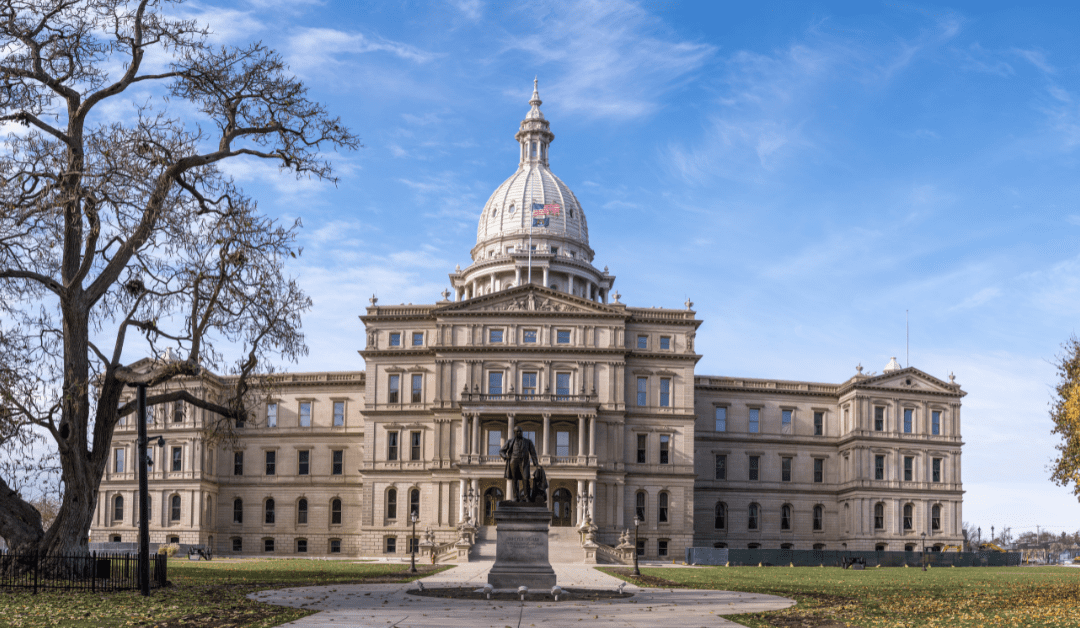
Michigan State Board of Education (Screenshot via Michigan Advance)
BY JON KING, MICHIGAN ADVANCE
MICHIGAN—The state Board of Education has approved a resolution requesting that lawmakers pass legislation to increase transparency about finances in Michigan’s charter schools, which were referred to as a “threat to democratically governed community-based schools.”
Introduced by board member Dr. Mitchell Robinson on Tuesday, the resolution calls for a number of reforms to be implemented, including the eventual phasing out of for-profit charter management organizations.
“While the original notion of charter schools as laboratories of innovation came from teachers unions, that purpose has now largely been lost to predatory for-profit charter management organizations,” said Robinson, an associate professor of music education at Michigan State University. “I’ve studied the effects of the unfettered proliferation of charter schools in Michigan over the last 10 plus years. I see no evidence of innovation in the charter sector, and I believe it’s time for much stricter oversight and accountability measures for the existing charter schools in our state.”
Charter schools, also called public school academies, are publicly funded and operate under a charter contract issued by a public authorizing body such as a university, community college or local public school district. One way they differ from traditional public schools is that members of charter school boards are appointed by the authorizer, as opposed to being elected by local voters.
According to a news release, the resolution is the result of increasing concerns by state school board members about national efforts to privatize public education, and give private and appointed boards, religious organizations, and for-profit corporations more of a say in public education.
The resolution also notes there are 285 charter school districts in Michigan that are responsible for 363 charter schools.
“We currently struggle to adequately fund and support one system of public schools, even as we are now funding an additional parallel system of publicly funded schools, which differ mostly from traditional public schools in that they pay teachers 30% less, administrators 30% more, and are excused from following many of the same rules and regulations as traditional public schools. This is an approach that’s both financially irresponsible and educationally unsound,” said Robinson.
The resolution calls for legislation that would include provisions requiring:
- Review by the Michigan Department of Education for approval or denial of applications of new, replicating, or expanding charter schools after consultation with the local district in which the charter will operate.
- Transformation of for-profit charter management organizations to nonprofit charter management organizations within the state.
- Full and complete transparency in all financial matters related to revenues and expenditures for charter management companies.
- Compliance with the Open Meetings Act and Freedom of Information Act.
- Publication of detailed management contracts and detailed educational management organization expenditures by function on the charter schools’ websites.
- Adherence to all bidding laws and regulations.
- Prohibition of students from being excluded from attending a charter school, discouraged from enrolling in a charter school, or encouraged to disenroll based on behavior, academic achievement, disability, English-language proficiency, family status, or living situation.
- Prohibition of charter schools from refusing transfer students during the school year if the charter schools have available space.
- Strong encouragement that all charter school teaching and administrative staff increasingly hold certificates instead of short-term permits and that employees who are working while holding temporary or emergency permits are encouraged to become fully certified.
The resolution passed 6-1, with Robinson being joined by fellow Democrats Marshall Bullock II, Ellen Lipton, Judith Pritchett, Tiffany Tilley and Board President Dr. Pamela Pugh.
Republican Tom McMillan was the lone no vote on the resolution. Nikki Snyder, the board’s only other Republican, was absent after she had walked out earlier in the meeting when the board rejected adding several of her school safety proposals to the agenda.
“The cowardice of this board is disgusting,” said Snyder as she picked up her bag and walked out of the board room.
McMillan, however, said he believed the charter school resolution was not focused on what was best for students.
“I know that there are many who want to protect the adults in the system. That’s their first priority as opposed to the children,” he said.. “They don’t want parents to have choices. And these charter schools give parents choices. They fill up for a reason because the parents want their kids to have a decent education.”
However, the quality of the education in Michigan charter schools is anything but a settled issue.
A 2023 study by Stanford University’s Center for Research on Education Outcomes (CREDO) ranked Michigan as one of the top 10 states when it came to charter school performance from 2014 to 2019, with students receiving an additional 36 days of learning in English and 24 days in math than their counterparts in traditional public schools.
But as Chalkbeat reported, the “days of learning” metric used in that study “is controversial among researchers, though, and hard to interpret,” citing a 2019 commentary by the Rand Corporation that specifically criticized the methodology used by CREDO.
State School Superintendent Michael Rice alluded to that very issue in his remarks Tuesday.
“Are charter schools providing a better academic opportunity?” he asked. “The research on charter schools does not reflect that. There are some studies that suggest that they have lightly improved. There are others that say not. There are some people that argue that the methodology around some of those studies is flawed. I’m one of those people.”
Meanwhile, a report card issued last year ranked student performance in reading and math on the National Assessment of Educational Progress, or NAEP, between 2009 and 2019. It was the first time that charter school performance across states was based on a single set of nationally administered standardized tests.
Michigan charter schools overall fared poorly, ranked as third worst in the nation, 31.1% below the national average.
Regardless, Dan Quisenberry, president of the Michigan Association of Public School Academies (MAPSA), which lobbies for the state’s charter schools, questioned the board’s priorities.
“When the State Board of Education refuses to take up three resolutions regarding school safety but instead chooses to target charter schools and the students they serve, we wonder what the priorities are for some of the board members,” he said. “As the board members well know, charter schools are fully public schools with public school boards. They’re open to any student in the state without qualification and they serve a far higher population of minority students and students living in poverty. Charter schools are among the highest-performing schools in the state, particularly in Detroit. Charter schools serve the most high-need and vulnerable students in the state, and yet these are the students the state board has decided to target?”
Dr. Molly Macek, director of education policy at the Mackinac Center for Public Policy, a conservative-leaning free-market think tank, said the resolution was not about transparency, but instead about depriving parents of educational choices.
“Allowing local public schools to have input on whether a charter school can be allowed to open is like giving Kroger the ability to decide whether a Meijer can open nearby,” she said. “Of course, they will always oppose it. That’s not what is good for students and families.”
Meanwhile, Pugh said that providing educational choices for parents absolutely involves having all of the facts, including financial data.
“Our public schools are a vital part of our local communities,” she said. “They should be governed by the people and not by outside groups that too often don’t support open government. Michigan spends more than a billion dollars annually on charter schools. Taxpayers must know how these dollars are being spent. Just as importantly, community members should be able to fully participate in important discussions and decisions that affect their public schools – including charter schools.”
This is not the first resolution by the state Board of Education seeking greater transparency from charter schools. In December 2022, the board approved a resolution calling for legislative action requiring financial transparency for charter schools based on the findings from Freedom of Information Act requests made in June 2021 of a cross section of charter schools and education management organizations.
The stated purpose of the requests was to determine the “extent charter schools and their education management organizations were held to the same standards of transparency as traditional public school districts.”
Of those requests, the Michigan Department of Education (MDE) found that 12 of 166 charter schools didn’t respond, while all 112 traditional public school districts did. Additionally, MDE said financial data for most charter schools consisted primarily of purchased services, which were unable to be verified with audited financial statements as charter management companies are not subject to the same financial reporting and audit requirements of traditional public school districts.
READ MORE: Michigan charter schools face scrutiny after taking billions in public funds
This coverage was republished from Michigan Advance pursuant to a Creative Commons license.
Politics

Slotkin urges Michiganders to compare prices before buying prescription drugs
A law sponsored by Congresswoman Elissa Slotkin is helping patients compare prices for different prescription drugs at different pharmacies—saving...

‘Melody’s Law’ would explicitly criminalize necrophilia in Michigan
BY ANNA LIZ NICHOLS, MICHIGAN ADVANCE MICHIGAN—There is no law on the books in Michigan that expressly criminalizes engaging in sexual conduct with...

SEIU workers ahead of NFL Draft: We are ‘the backbone of Detroit’
BY KEN COLEMAN, MICHIGAN ADVANCE MICHIGAN—A day ahead of the National Football League annual draft being held in Detroit, Service Employees...
Local News

4 Michigan dispensaries that will deliver weed straight to your doorstep
MICHIGAN—If you’ve ever dreamed of purchasing quality weed without ever having to leave your house, then you’re in luck. Michigan dispensaries have...

The 9 best pizzas in Michigan, according to our research
When it comes to finding the best pizza in Michigan, the options are endless. From the bustling city of Detroit to the quaint town of Cadillac,...




